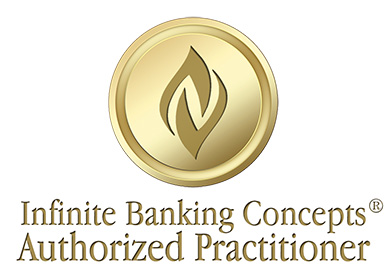“The secret of success in life is for a man to be ready for his opportunity when it comes.”
-Benjamin Disraeli
The Best Way to Save Money
Only three years before the Great Depression started with the stock market crash of 1929, George S. Clayton published The Richest Man in Babylon, a classic personal finance books written in parable style. His advice was as important and timeless then as it is now. In the chapter titled “Start Thy Purse to Fattening,” Clason advises,
“For every ten coins thou placest within thy purse, take out for use but nine.”
And the first money you save is often designated as your “emergency fund.” Any financial advisor worth their salt will tell you that BEFORE you start putting money aside in any investments that might earn them a commission, you need an emergency fund.
Without an Emergency Fund, real investing will be forever sabotaged. You’ll be using your credit card, borrowing against home equity, or cashing out investments (and probably generating taxes, fees, or other costs) with every unexpected expense. And the only thing you can rely in regards to expenses is that there will be unexpected expenses!
But we think that an “Emergency Fund” is much too limiting a concept.
Emergency funds are the savings that will keep you out of debt and keep your investments uninterrupted when “stuff happens.” It’s important to have emergency funds for the cat’s surgery or the cross country trip to visit an ailing relative, but you don’t want to limit your preparation – mentally and financially – to “emergencies.” Why not save for the unexpected “good stuff” as well as the mechanic bills, medical emergencies and leaky roofs?
Can Your Emergency Fund Handle an Opportunity?
Just like emergencies, opportunities require preparation. You can prepare for “opportunities” like the chance to invest in a proven business opportunity, purchase a piece of excellent cash flowing real estate at a discount, celebrate your best friend’s wedding on the Mexican Riviera, or go back to school for an advanced degree to expand your career.
Can You Spot An Opportunity?
You might be thinking, “What opportunities? I never see any real opportunities – just bills and unexpected expenses!” And you might be right, because what you “see” is truly what you get!
Whether or not you believe in the Law of Attraction, there is definitely truth to the fact that we’re likely to find whatever we are looking for. John Assaraf and other brain researchers call this our “Reticular Activating System,” or RAS. This is our brain’s “google function,” so to speak. Our minds are not so different from an internet search bar – we have cognitive filters that unconsciously filter out most of the information we are bombarded with every day to leave us with a more manageable amount that corresponds to our worldview and the topics that interest us most.
Opportunities come to those ready for them. If you are focused on how to come up with the $500 deductible for a fender bender, you won’t notice the bridge loan investment opportunity that would pay 14% annualized interest on the $50,000 you don’t have.
But when you grow your Emergency Fund into an “opportunity fund,” you can transform an emergency into an opportunity!
An “Emergency Fund” might be equal to the amount you’d need to live on for 6 months in case your income stopped. And with 6 months of living expenses saved, you’ll be hitting the pavement, praying you find a job that is a good match and that pays similarly – or better – than your last. But what happens after 6 months?
Imagine if you had saved 10x that amount – what options could you choose? Perhaps you’d forget the job hunt and buy a small winery… or relocate to Costa Rica and work from your computer. You could join Timothy Ferris in search of a “Four Hour Workweek” that could support you in a life of travel, or expand your real estate investments and write that memoir.
What would YOU do with an Opportunity Fund?
You might recognize these people who utilized the savings in their whole life insurance policies:
- In 1929, when the stock market crash devastated J.C. Penney’s profits and personal wealth, he borrowed against his life insurance to meet payroll and operating expenses. Because of this, the company stayed afloat and rebounded when the economy improved.
- Following early bankruptcy and failure, Walt Disney failed to find traditional means of financing his first theme park. Undeterred, Disney collateralized his life insurance policy in 1953 to help fund what would become Disneyland. He primed the pump with $200,000 and other investors followed.
- When Ray Kroc began opening McDonald’s hamburger stands, he did not take a salary during his first 8 years. He borrowed money from two cash value life insurance policies (as well as his bank) to overcome constant cash-flow problems and help cover the salaries of key employees. Some of the money was also used to create an advertising campaign for mascot Ronald McDonald.
- In 1980. Doris Christopher started The Pampered Chef in her suburban Chicago home in 1980 with $3,000 borrowed against a life insurance policy. The company was acquired by Warren Buffett’s Berkshire Hathaway Corporation in 2002 and today boasts 12 million customers.
What’s the Best Way to Save Money for Emergencies AND Opportunities?
Too many people have most of their “savings” tied up in places where their assets are illiquid. Avoid these scenarios:
- You must either wait or pay penalties to get your money.
- You’ll pay steep taxes and/or fees to use your own money.
- You either can’t use or must use the money, depending on your age.
- There are limits on how much you can save.
- You must qualify to access the money.
- The money can only be used for certain purposes.
- A change of income, credit, or home values could make it your “emergency fund” inaccessible.
This is why CD’s, bonds, retirement accounts, qualified funds, and home equity lines of credit make poor choices for both Emergency Funds and Opportunity Savings. (We can make a good argument that these investments also make poor choices for retirement funds, but we’ve covered that topic elsewhere.)
We recommend that your savings be liquid and also that you have the ability to borrow against your funds and not simply deplete them. You shouldn’t have to pay taxes and fees to use your own money, or have to qualify to access it. We also don’t recommend dividing up your savings in 10 different accounts where some can only be used for education, others for medical expenses, still more after age 65. For these reasons, we recommend:
1. Start saving 10% in a savings account at your local credit union or bank.
2. Save additional income into cash value whole life insurance with paid-up additions. Pay your life insurance premiums, and if possible, your maximum paid up additions.
There is no need to separate “emergency funds” from “opportunity funds.” What really makes the difference between the two is the amount. $1,000 might give you a start on an emergency fund, but $100,000 can create opportunities. You want to save to expand your options, not just to prepare for worst-case scenarios.
Do you have an opportunity fund? If not, we encourage you to start one now! We also invite you read two classic little books that can set you on a path towards prosperity: George Clason’s The Richest Man in Babylon (quoted throughout post) will inspire you to “set your purse to fattening.” And we recommend our own Kim D. H. Butler’s book, Live Your Life Insurance to learn how to utilize privatized banking strategies with cash value insurance.
To personally discuss the best way to save money and how to create your own Opportunity Fund, call us at (702) 850-8100 (ext. 2) to schedule a consultation.
©Prosperity Economics Movement




